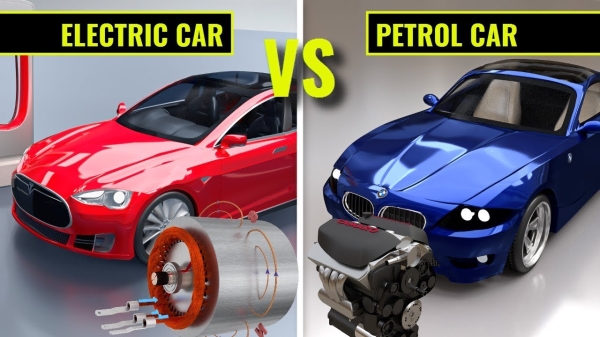Washington, DC–(ENEWSPF)–April 9, 2015.
ISSUE: Model year 2007 and earlier vehicles may be susceptible to brake pipe corrosion that can occur after seven to eight years of exposure to winter road salts. If brake pipe corrosion is not properly addressed, there is the potential of brake pipe failure which could result in a crash.
Consumer Actions to Protect Against Brake Pipe Corrosion in Older Vehicles
Remove road salt that leads to corrosion:
Thoroughly clean your vehicle, including the undercarriage, at the end of the winter
Regularly wash the undercarriage throughout the winter.
Monitor your brake system, including brake pipes, and other undercarriage components for corrosion or signs of brake failure:
If you own an older vehicle in a cold-weather state, have a qualified mechanic or inspection station inspect the vehicle at least twice a year. If there are any signs of corrosion, inspect the brakes more frequently, at least every time you bring your vehicle in for service.
Keep an eye on brake fluid level. Watch for changes in how your brake pedal feels and for signs of fluid leakage beneath the vehicle. All of these could indicate a leak in your brake pipes.
If you find severe corrosion that causes scaling or flaking of brake components (see the photos below), replace the entire brake pipe assembly:
Do not replace just a portion of the assembly. Failure in one portion of the brake pipes generally means other sections of pipe are at risk of failure.
Check with your manufacturer to see if they have pre-fabricated brake pipe kits to make replacement easier and potentially less expensive.
Background
NHTSA recently conducted an investigation of brake pipe failures due to corrosion in a large population of 1999 through 2003 model year full-size pickup trucks and sport utility vehicles and found that the failures result from end-of-life wear-out. Data show that this corrosion problem is linked to brake line coating materials that several manufacturers used during this time period. Vehicles driven in the following salt states are more prone to corrosion-related issues: Connecticut, Delaware, Illinois, Indiana, Iowa, Maryland, Massachusetts, Maine, Michigan, Minnesota, Missouri, New Hampshire, New Jersey, New York, Ohio, Pennsylvania, Rhode Island, Vermont, West Virginia, Wisconsin and the District of Columbia.
FREQUENTLY ASKED QUESTIONS:
How do I know if my car has a problem?
Have your vehicle’s brake system inspected for corrosion. Replace the brake pipe assembly if there is evidence of scaling corrosion in any portion of the lines (Figure 1). Every time you drive your vehicle, keep an eye out for leaking brake fluid and other signs of a compromised brake pipe, including your brake warning lamp or changes in feel (for example, if the pedal feels soft or spongy) or if it feels like you have to press the pedal closer to the floor than normal before braking begins.

Brake pipe corrosion from left to right: a) no corrosion, b) corrosion without scaling, c) corrosion with scaling, and d) severe scaling corrosion with leakage.
What should I do if my brake pipes fail?
If you experience a brake pipe failure while driving, press and hold the brake pedal with constant pressure to get the best braking performance. In most cases you will hear the antilock brakes activate; this is a normal part of the system’s operation and lets you know that the remaining brake circuit is functioning. Allow yourself more time to stop and additional space between you and vehicles you are following. Don’t pump the brakes – this will increase the distance it takes to stop your vehicle.
If you notice that your brake pipe is leaking, do not drive your vehicle. Inspect the brake pipes for corrosion or other potential causes of leaks. If the pipes are corroded the best thing to do is replace all of them at the same time. Partial repairs frequently result in multiple failures, often within a year of the initial failure, and can be more dangerous and more costly over the life of the vehicle. Check with your manufacturer to see if it offers a prefabricated brake pipe assembly kit, which can reduce the time and cost of repairs.
I’m still not sure how this affects me. Who can I call?
For more information, or to report a possible safety defect, you can call NHTSA’s Safety Hotline at 1-800-424-9153
Additional Resources
Watch NHTSA’s consumer safety video on corrosion
NHTSA closes investigation into brake-line failures
Stay connected with NHTSA: Search for open recalls with VIN look up | Download the Safercar Mobile App for Apple or Android devices | Receive recall alerts by email | Visit us on Facebook.com/NHTSA | Follow us on Twitter.com/NHTSAgov | Watch 5-Star Safety Ratings crash tests on YouTube.com/USDOTNHTSA | SaferCar.gov
Source: hhtsa.gov








